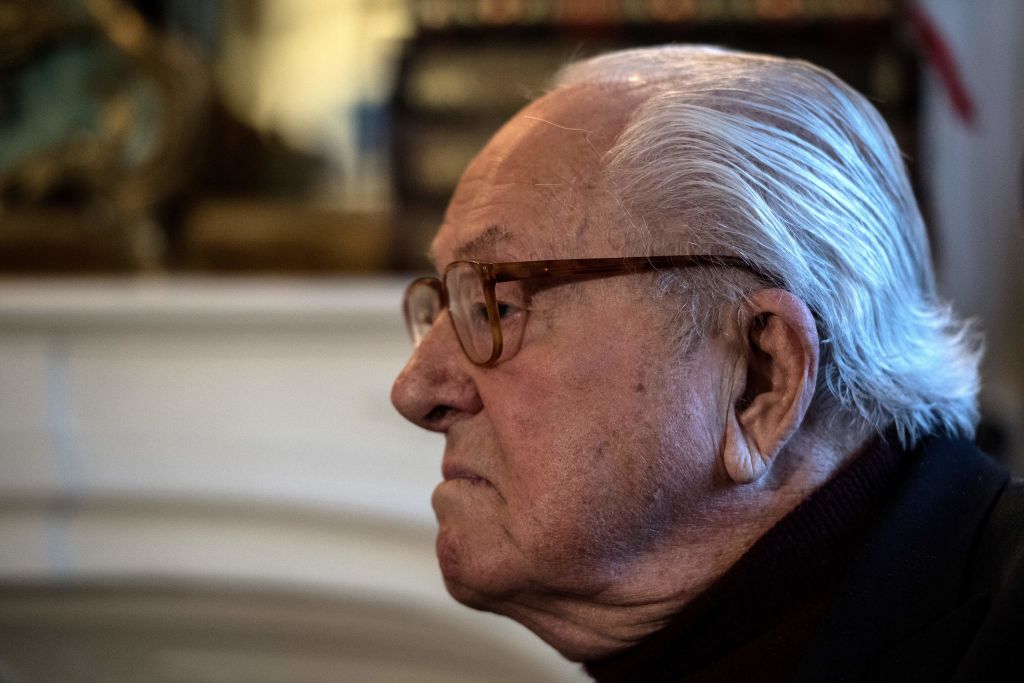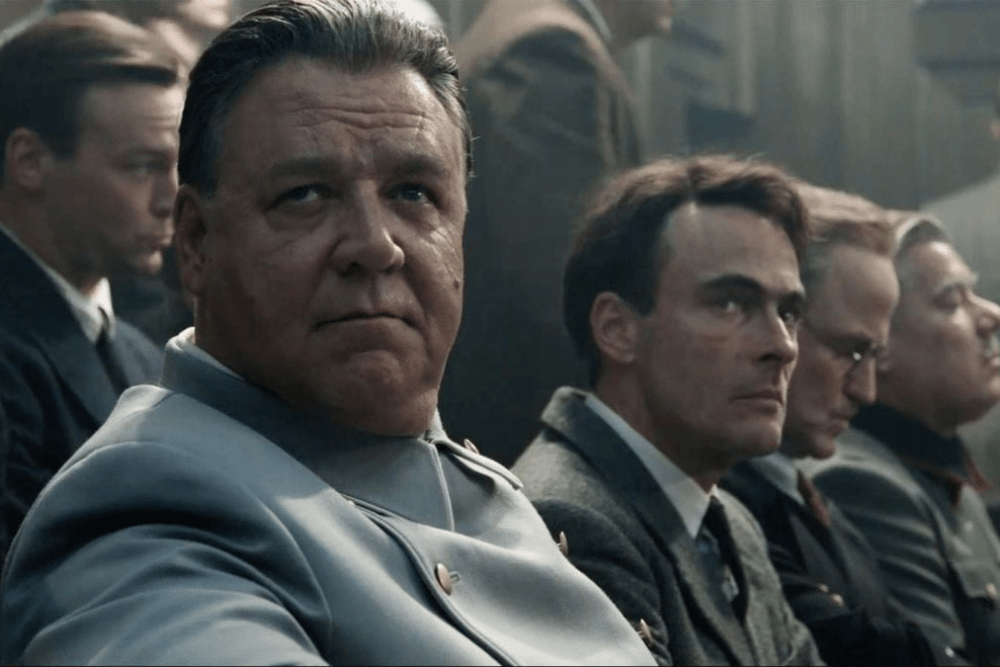Jean-Marie Le Pen, who died aged 96 on 7 January, was the personification of the travails and excesses of post-war France.
He was a co-founder in 1972 of the reactionary Front National, whose senior members included former Vichy collaborators and a former member of the Waffen SS Charlemagne Division. Yet on 21 April 2002 to universal surprise, he nonetheless beat the Socialist candidate and qualified for the second round of the French presidentials with 18 per cent of the vote. For some he was a malign towering figure of French politics and political life for six decades; for others the outspoken tribune of the French people insistent on stating fearlessly, even recklessly, in the manner of an Enoch Powell, what many did not want to hear.
Since his birth on 20 June 1928 in the small Breton fishing village of La-Trinité-sur-Mer he flirted willingly or not with the excesses of France’s turbulent history. The ‘Menhir’, as he was affectionately known (in reference to the Celtic stone monoliths that pepper his homeland), was orphaned in 1942 when his father’s fishing boat struck a mine. The febrile and often violent student politics of post-war France saw him cut his teeth as a ‘bruiser’ anti-communist law student willing to defend the dishonoured Vichy regime.
He was a bit-part player in France’s desperate attempt to conserve its post-war international rank when he volunteered in 1954 as a paratrooper in the Indochina war. French military humiliation at Dien Bien Phu was cast as a sell-out political defeat by the young Le Pen. He returned to France galvanised in his anti-establishment convictions ready for his next brush with French history.
Elected to the National Assembly in 1956 as its youngest member, he was a leading light in Pierre Poujade’s populist shopkeeper and anti-taxation movement of 53 députés. He demonstrated his brilliant campaigning skills and what was to be become his trademark truculent eloquence, laced now and then with provocative antisemitic innuendo.
Disappointment at Poujade’s will-o-the-wisp and seemingly directionless political success provoked the young MP to enlist as a paratrooper in France’s war ‘with no name’ in Algeria. Here too excess was his companion, with Le Pen admitting to having tortured as a young lieutenant. Again France’s political defeat and de Gaulle’s granting of independence led him to side politically with the putschist generals who attempted the 1961 coup d’état in Algeria. In 1965 he shone as the campaign manager for the former Vichy junior minister and far-right candidate Jean-Louis Tixier-Vignancourt in his vainglorious presidential candidacy against de Gaulle.
Cutting a raffish figure, he served in 1958 as a second in one of France’s last duels and by the late 1990s was sporting a piratical black eye-patch (due to unfortunate tent erecting) and later a glass eye. He was even left a multi-million fortune by a cement industrialist in 1976. His first marriage in 1960 to Pierrette Lalanne, giving him three daughters, ended in acrimonious divorce in 1987 with Pierrette taking her revenge by posing for Playboy as a saucy maid.
But by 1972 he ceased merely tugging at the coat-tails of French history. Creating the National Front saw him making history by transforming the political landscape and the French right. His new nationalist far-right party capitalised on the end of the French post-war trente glorieuses economic boom and the subsequent rise in unemployment, while pointing to immigration as a cause.
With the left unwilling to fight on that battleground, Le Pen’s troops slowly drained their electorate in France’s eastern rust-belt and Mediterranean rim. The party’s electoral success grew in the 1980s and 1990s to some 15 per cent. But it was seriously boosted following its takeover in 2011 by his youngest daughter and its subsequent make-over, including the name change to Rassemblement National in 2018.
Marine Le Pen’s successful ‘detoxification’ of the party meant distancing it from its Vichy roots and values and, inevitably, from its founder. After repeated public provocations from the old bruiser in 2015, Jean-Marie Le Pen was excluded from the party. Many questioned whether he had ever wanted to achieve governmental power rather than merely seeking to provoke. President François Mitterrand believed that to be the case and likened his calculated provocations to the famous 19th century music hall star ‘le pétomane’, whose only intent was to take to the stage to shock.
The ‘tank with no reverse gear’ never reneged on his unsavoury bedfellows
Even in the face of media and general opprobrium the ‘tank with no reverse gear’ never reneged on his unsavoury bedfellows like Pierre Bousquet, the former SS member who was party treasurer for nine years. By contrast the media were far more indulgent when in the 1990s it was discovered that François Mitterrand had been decorated with the Vichy francisque, or that he continued to frequent, until his assassination in 1993, the ardent anti-Semite and collaborator René Bousquet, head of Vichy’s police and organiser of the notorious July 1942 roundup of Paris Jews to Nazi concentration camps.
The last surviving parliamentarian of the Fourth Republic provoked outrage, even beyond the grave. At the announcement of Le Pen’s death, the radical left organised joyful public celebrations with no respect for grieving. The irony is that the anti-Semitic Jean-Marie Le Pen was being harangued by the same radical left whose anti-Semitism has been on display since 7 October 2023. Jean-Marie Le Pen may have notoriously referred to the gas chambers as ‘a detail of history’, but had not the radical firebrand Jean-Luc Mélenchon referred to the daily anti-Jewish aggressions on French streets post-7 October as mere ‘residual anti-Semitism’?
From a mere extravagant character in the slipstream of history, by the time of his death Jean-Marie Le Pen had taken the French nationalist right into the mainstream of French politics. His impact on France’s history may not be over yet.








Comments